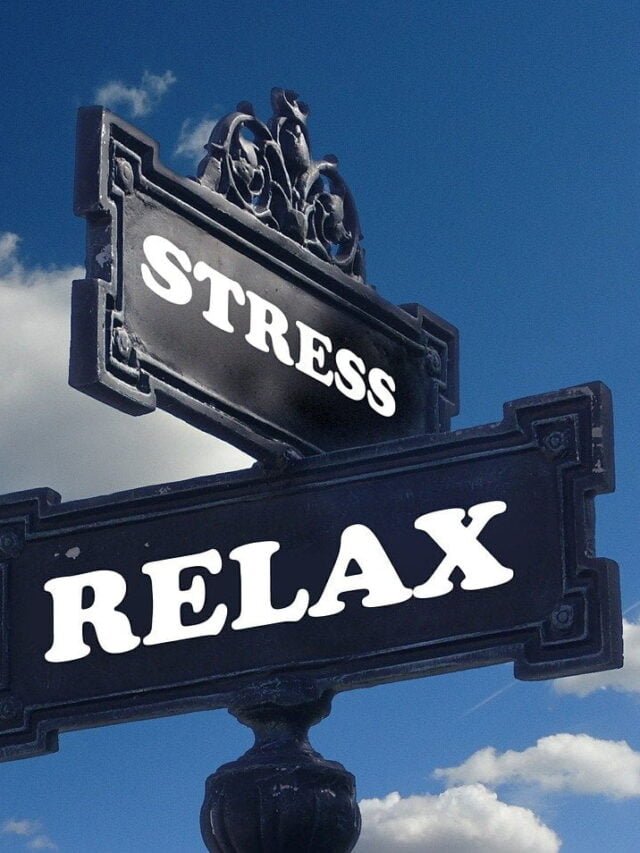Introduction
Stress management techniques are the ultimate way to release the stress as it has a strong impact on the body and mind in our daily routine. The intensity of stress can cause serious health issues regarding physical and mental health. It is very important to understand the reasons for stress to find out the solutions and stress management techniques to avoid it. Every person has a different response level to stressful situations and responds differently. It depends on person to person.
What is Stress?
Stress is the physiological response of the body and mind to different challenging situations. If a person can understand the unwanted situations and their dynamics, stress can be managed more effectively. By recognizing the stimulus of stress, many coping strategies or stress management techniques can be applied to figure out the helpless situations of stress.

Signs and Symptoms of Stress
- Physical Signs of Stress
- Headaches and Muscle Tension
- Digestive Issues
- Frequent Illness
- Insomnia or Changes in Sleep Patterns
- Emotional and Behavioral Signs of Stress
- Mood Swings
- Changes in Eating Habits
- Social Withdrawal
- Procrastination and Lack of Focus
- Cognitive Signs of Stress
- Memory Issues
- Negative Thought Patterns
- Constant Worrying
- Behavioral Signs of Stress
- Increased Substance Use
- Nail Biting or Other Nervous Habits
- Restlessness or Agitation

The Importance of Stress Management: Nurturing Your Well-Being
It is important that stress management techniques should be applied to make life better
To Maintain Physical Health
The body reacts to stressful conditions through changes in physiological functions, such as high blood pressure and its related issues. Unmanaged stress can lead to serious mental as well as physical health illnesses.
To Safeguard Mental Well-Being
Persistent exposure to stressful situations can lead to depression, anxiety, and other different mental disorders. The connection between stress and mental health is undeniable. Effective stress management techniques acts as a protective barrier, reducing the likelihood of developing these conditions and fostering a resilient mindset.
To improve Emotional Resilience
The ability to cope with setback situations and maintain the dynamic equilibrium of emotional strength can equip the person to deal with challenging situations through emotional resilience.
By Improving Relationships
Good relationships are built through affectionate behaviors in family units as well as in society. Stress conditions drained these relationships through bad tempers, disagreements, unreasonable battles, and stretched behaviors. Through improved mental health, one can develop better societal interactions that help him lead a life full of happiness and prosperity.
To Boost Efficiency and Focus
Stress has a strong impact on the efficiency and productivity of an individual. It can have a profound impact on the cognitive functions of individuals as well as society as a whole. By implementing stress management techniques, efficiency and focus can be built to enhance the productivity of individuals and society.

To Stop Burnout
If a person is in a continuous mode of stress, the exhaustion and burnout will be obvious. In this situation, stress management can improve behavior by creating boundaries for individuals and prioritizing self-care.
To improve Quality Sleep
Stress and sleep are directly connected to each other. Constant stress conditions have a severe negative impact on sleep patterns, leading to insomnia and restlessness during the night. Through applying stress management techniques , sleep quality can be improved.
Empowering Individual Growth: Stress management is a path of self-discovery and individual growth. It prompts individuals to reflect on their coping mechanisms, strengths, and areas for improvement. This process of self-awareness fosters continuous personal development.
Stress Management Techniques
The key to a healthier and more balanced life lies in effective stress management techniques. Here are some stress management techniques to navigate the tasks of daily life and maintain a sense of calm and well-being.
- Mindfulness Meditation
What is it?
Meditation requires a high level of focus and contentment in the present moment, without any judgment. It promotes awareness of thoughts and feelings, allowing individuals to respond to stressors more effectively.
How to Practice:
- Find a silent space
- Sit or lie down contentedly
- Focus on breath or a chosen focal point
- Allow thoughts to come and go without attachment

- Physical Exercise
Why it Works: Exercise frees the endorphins, the body’s biological stress relievers. It also provides a healthy outlet for pent-up energy and tension.
Types of Exercise:
- Cardiovascular activities (running, biking, swimming)
- Strength training
- Yoga or Pilates for a mind-body connection.
- Deep Breathing Exercises
Benefits:
Deep breathing exercises can initiate a relaxing response in the body. It promotes a sense of calmness by reducing stress hormone levels.
Techniques:
Diaphragmatic breathing is used for breathing exercise methods. The techniques involve deep inhalation through the nose and allow the diaphragm to expand. Then the exhale works using the 4-7-8 method. Inhale the breath for four counts, hold it for seven counts, and exhale for eight.
- Time Management
Importance:
Time management is a vital factor in normalizing and preventing stressful and challenging situations.
Tips:
- Prioritize tasks
- Break tasks into smaller, manageable steps
- Learn to say no when necessary

- Establishing Healthy Boundaries
Importance: If a person can set their boundaries, it can prevent burnout and lead to a healthy lifestyle.
How to Set Boundaries:
- Clearly communicate your limits.
- Learn to delegate tasks.
- Make self-care non-negotiable.
- Adequate Sleep
Benefits: Adequate sleep can maintain the stress hormone level in low concentration in the blood and maximize the cognitive functions and productivity of individuals.
Tips for Better Sleep
- Maintain a constant sleep schedule.
- Design a relaxing bedtime routine.
Limit mobile and computer screen time before bed.

7. Social Support
- Role in Stress Management
- Sharing concerns and receiving support from friends or family provides emotional relief.
- Building a Support Network
- Cultivate strong relationships
- Join clubs or groups with shared interests
- Seek professional help if needed

- Gratitude Practice
Positive Effects: If a person has gratitude for others, it can for others. It impacts its own metal health positively.
How to Practice:
- Keep a gratitude journal.
- Reflect on three things you’re grateful for daily.
- Progressive Muscle Relaxation (PMR)
Relaxation Technique: The PMR technique involves stretching and relaxing each muscle gradually. This can improve both physical and mental relaxation.
How to perform:
- Start with facial muscles and move down the body.
- Hold tension for a few seconds, then release.
- Healthy Nutrition
Nutritional Impact on Stress: Overall wellbeing and mental health can be improved through healthy and balanced nutrition.
Key Nutrients:
- Omega-3 fatty acids are found in fish and flaxseeds.
- Vitamins and minerals, especially B-vitamins and magnesium.
Conclusion
It is important to identify the reasons for stress that would lead to effective stress management. Make priorities according to these factors and seek help accordingly. The change in lifestyle can have a positive impact, along with stress management strategies. The consistency of these practices can cultivate resilience and make it easier to cope with the complexities of life.
FAQs
What is more important to release stress with meditation duration or consistency?
Consistency has a greater impact than the duration of meditation, as a five- to ten-minute session can improve the stress level significantly.
How can better results be obtained through stress management techniques?
One can be more successful in releasing his stress if he applies multiple stress management techniques together.



Very helpful information
Very helpful information for stress management
Very nice write-up. I certainly love this site. Keep it up!